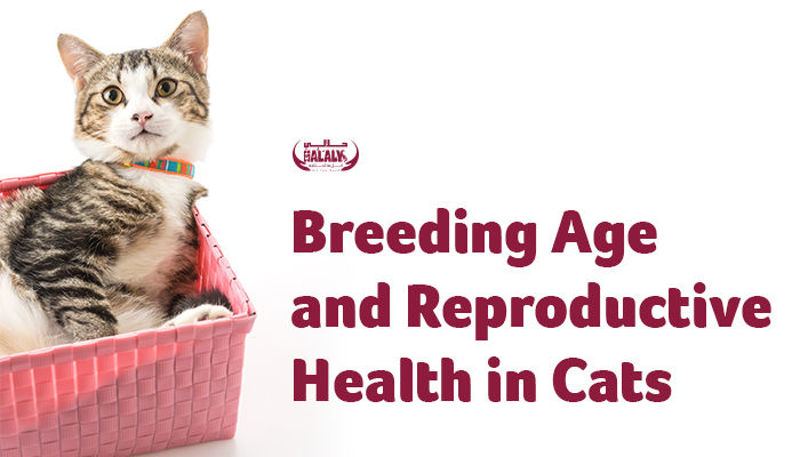When it comes to understanding the breeding age and reproductive health in cats, a little knowledge goes a long way.
If you’re considering breeding your cat, it’s essential to know the basics about their development, health, and care during these critical times. Let’s explore some key points about breeding age, caring for kittens, and how to ensure your cat stays healthy throughout the process.
What Is the Breeding Age for Cats?
Cats mature at different rates depending on their breed, size, and overall health. On average, most cats reach sexual maturity between 5 and 9 months old, though some can start earlier. This doesn’t mean it’s the right time for breeding. Experts recommend waiting until a female cat is at least 12 months old before allowing her to have kittens. This ensures she’s fully grown and ready to handle the physical demands of pregnancy and motherhood.
For male cats, breeding can start around 6 to 12 months of age, but it’s important to remember that their health and temperament also play a role. Breeding too early or too often can lead to stress and health issues, so careful planning is key.
Best Age to Breed a Cat
The ideal age for breeding a female cat is typically between 1 and 5 years old. During this time, she’s physically mature, has reached her peak health, and is better prepared to handle pregnancy. Breeding older cats (over 6 or 7 years) carries more risks, including complications during birth.
Male cats can breed for a longer period, often into their senior years, provided they remain in good health. Regular vet checkups can help ensure that an older male is still fit for breeding.
Understanding Kittens at Different Ages
Kittens grow and change rapidly in their first weeks and months of life. Here’s a quick look at their development:
-
Newborn to 2 weeks: Kittens are completely dependent on their mother. They’re blind, deaf, and need warmth and nourishment.
-
3 to 4 weeks: Eyes and ears open, and kittens start exploring their surroundings. Tiny teeth begin to emerge.
-
5 to 8 weeks: This is the weaning stage. Kittens learn to eat solid food and play more actively. Socialization during this period is crucial for their development.
-
9 to 12 weeks: Kittens are usually ready to leave their mother and go to new homes. They’re playful, curious, and full of energy.
Knowing these stages helps breeders and pet owners provide appropriate care and ensure kittens grow into healthy, happy cats.
Female Cat Breeding Age and Heat Cycles
Female cats go into heat, or estrus, as part of their reproductive cycle. This can start as early as 5 months old and occur every 2 to 3 weeks during the breeding season (spring to early fall). Signs of heat include increased vocalization, restlessness, and affectionate behavior.
While it may be tempting to allow your cat to breed during her first heat cycle, it’s best to wait until she’s at least 1 year old. Early pregnancies can put unnecessary strain on her body and lead to complications.
Tips for Supporting Reproductive Health
Whether you’re planning to breed your cat or simply ensuring her overall well-being, here are some tips:
-
Regular Vet Checkups: Keep up with vaccinations and routine health checks. Your vet can help you determine the best time for breeding and monitor your cat’s health throughout pregnancy.
-
Balanced Diet: Nutrition plays a huge role in reproductive health. Feed your cat a high-quality diet tailored to her age, weight, and specific needs. Pregnant and nursing cats require extra calories and nutrients to support their kittens.
-
Comfortable Environment: Provide a quiet, safe space for your cat during heat cycles, pregnancy, and after giving birth. Stress can negatively impact her health and the health of her kittens.
-
Plan for the Future: If you’re breeding cats, be prepared for the responsibility. Ensure you have homes lined up for the kittens, and understand that not every pregnancy will go smoothly. Unexpected vet visits or complications can arise.
When Not to Breed
Not every cat is suited for breeding. If your cat has a chronic illness, genetic issues, or has had complications during previous pregnancies, it’s best to avoid breeding. Spaying and neutering can be safe and effective options to prevent unwanted litters and promote long-term health.
A Personal Note on Cat Breeding
Owning and caring for a cat is a big responsibility. By understanding the breeding age and reproductive health in cats, you can make informed decisions that benefit both your pet and their potential offspring. Always prioritize their well-being, and don’t hesitate to consult a vet for guidance.
Cats are amazing companions, and with the right care and attention, you can ensure their health and happiness through every stage of life.























































